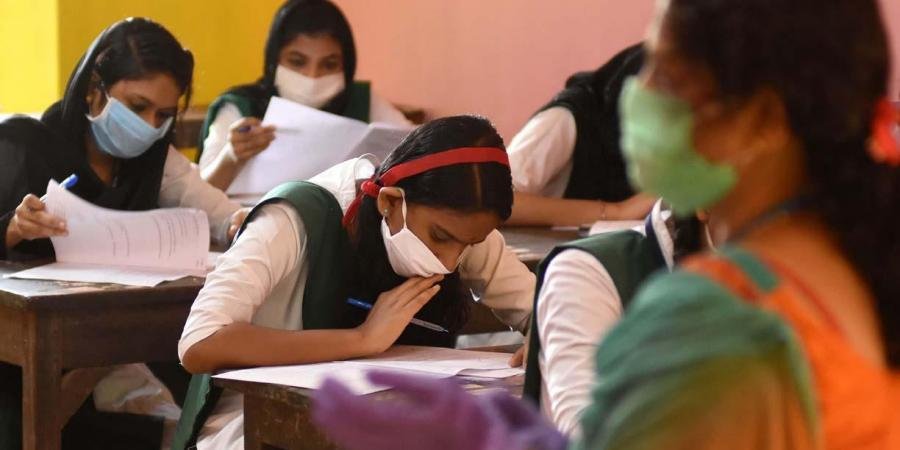Key Points:
- From October 15, schools can reopen as per the Central Government.
- The decision of reopening lies in the hands of the state government.
- SOP’s for Health and Hygiene are a must like wearing protective gears, regular health checkups and Mid-Day Meals.
- Learning with distancing by maintaining space, learning through ICT, E-Books and study material.
- Mental and Emotional safety of students must be considered.
- No assessment in the first 2-3 weeks.
- NCERT guidelines for Alternate Calendar activities can be followed.
- Guidelines of UNICEF for safe environment will be provided to the schools, parents and students.
State Governments and Union Territories are pulling up their socks to reopen the School in a phased manner despite of Covid-19. Schools are set to reopen from October 15 said the Education Ministry’s Guidelines. The Ministry has given the States and UT’s the decision to open or not the schools, in the latest guideline issued. Reopening is not mandatory while Online Classes will continue to run said the Ministry of Home Affairs.
The guidelines for reopening are in the format of a Press Release on the official Press Information Bureau’s page :
https://pib.gov.in/PressReleasePage.aspx?PRID=1661806
The guidelines include two parts:
1) Standard Operating Procedure (SOP) for Health, Hygiene and Safety.
2) Learning with Physical and Social Distancing.
Guidelines for Health and Safety part of the Reopening:
1) Disinfecting all areas on the campus and ensuring air flow in indoor spaces.
2) Emergency Task Teams to be formed by the Schools and School authorities and parents to decide the SOP’s for effective management of the students.
3) All people entering the campus must be wearing protective gears and protocols to maintain distance must be displayed largely.
4) School authorities to consult parents on letting or not their child to get back to school, it’s not mandatory.
5) Flexible attendance and sick leave policies may be developed and implemented to encourage students and staff to stay at home when sick.
6) Regular health check-up of students and teachers may be organized.
7) A suggestion of completing Nutritional requirements of students to be completed by giving Hot Mid-Day Meals.
No assessment till up to 2-3 weeks of school reopening. Use of #ICT & online learning shall continue to be encouraged. The SOP also provides for guidelines on ensuring emotion well being of students and teachers with a reference drawn to #Manodarpan initiative.#SchoolGuidelines
— Dr. Ramesh Pokhriyal Nishank (@DrRPNishank) October 5, 2020
Guidelines for the Social Distancing and Academic part of the Reopening:
1) Making a Comprehensive Alternative Calendar of Activities for the Whole Year with focus on learning outcomes. NCERT guidelines can be followed.
2) Training Modules of integrating ICT in the class should be done by the teachers and helping students reintegrate must be a priority.
3) Children can be taught pandemic related concepts in various subjects to sensitize them.
4) Students must know the curriculum before they begin learning and focus on the most vulnerable students by providing them with assistive devices and learning content as per the needs of the Children with Special Needs (CwSN).
5) Divergent resources must be used abiding by the distancing norms and to make the teaching learning process better.
6) PRAGYATA Guidelines on digital and online education can be used to orient teachers and students in this regard. Textbooks and reference books must be provided before the reopening and the downloading methods to be taught too.
7) Schools to ensure smooth transition of students from home-based schooling during lockdown to formal schooling.
8) Schools to provide mental health support and emotional safety to their students for which ‘MANODARPAN’ can be used to provide psychosocial activities.
9) Six feet distance, Masks, Gloves, and proper sanitization frequently is MUST.
DoSEL, @EduMinOfIndia has issued SOP/Guidelines for reopening of schools. pic.twitter.com/pwJXZZd40w
— Dr. Ramesh Pokhriyal Nishank (@DrRPNishank) October 5, 2020
Adding to this, students and teachers who live in the containment zones, are not allowed to attend schools. No restriction on inter-state and intra-state movement of persons and goods and no separate permission or approval will be required for such movements. Thermal scanners for screening the body temperature of students and teachers are mandatory at the school foyer.
To curb the spread of Covid-19, United Nations Children’s Fund (UNICEF) guidelines for a protected school atmosphere are provided for schools, parents and students.

